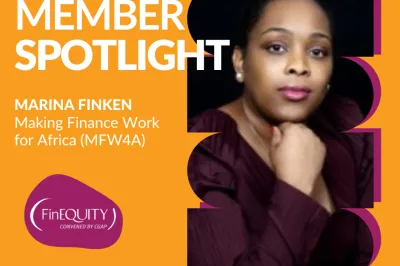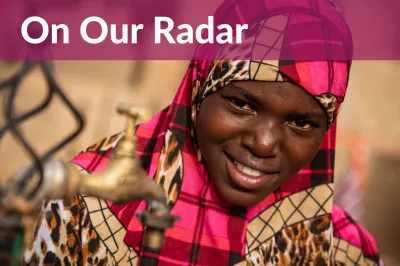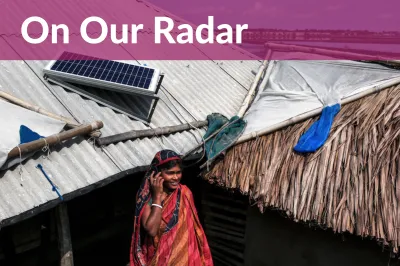Sex-Disaggregated Covid-19 Data Resources

Sex-Disaggregated Covid-19 Data Resources
By gathering COVID-19 data trackers and resources focusing on the collection of sex-disaggregated data we can develop a better understanding of how the pandemic is impacting women entrepreneurs, their households, and communities. (This list complements our on-going collection of Materials on the Issue of Women's Financial Resiliency as it Relates to COVID-19.)
The coronavirus (Covid-19) pandemic has significant and disproportionate impacts on women’s economic opportunities. Women around the world are losing paid work and doing more unpaid work because of the pandemic. Women are also more likely to be in informal and low-paid jobs, and millions have lost their livelihoods overnight.
Recovery periods after crises can provide an opportunity to ‘do things differently’ and to build more inclusive and equitable systems. Designing gender-inclusive responses require good data that provides specific insights on how the pandemic is impacting women entrepreneurs, their households and communities. While there are several COVID-19 data trackers and resources, this page is dedicating to highlighting those that have a direct focus on collecting sex-disaggregated data that can be used by financial inclusion stakeholders.
Data Collection Hubs
The FinmarkTrust COVID-19 Data Tracker is a free-to-use website that tracks health indicators, risk behaviors, food security, income levels, work, and job security, personal safety concerns, and access to government and community support, on a sex-disaggregated basis. The COVID-19 tracker is currently live in Kenya, Nigeria, South Africa, Rwanda, Uganda, and Zambia. The tracker has 3 waves of data in most markets, with another 2 waves of data to be added soon. Users can access over 80 indicators and filter the data by sex, geographic area, region, and age. The survey data is visualized in a simple manner where users can view the waves of data in a timeline series, or opt to download the raw datasets in multiple formats.
IPA's Research for Effective COVID-19 Responses, or RECOVR, is an effort to create a repository of rigorous evidence on the social-economic impact of the pandemic in low- and middle-income countries. RECOVR provides links to survey tools, ongoing research efforts, and relevant research and analysis, some of which are either specifically focused on women or relevant to women’s financial inclusion and economic empowerment.
- Results & Analysis: List of reports and publications on the socio-economic impacts of COVID-19 in low- and lower-middle-income countries
- Research Projects: Ongoing studies focused on the socio-economic impacts of COVID-19
Data Analysis and Insights
MicroSave Consulting – Coping with COVID MicroSave Consulting has been conducting research across Bangladesh, India, Indonesia, Kenya, and Uganda to understand how the low and middle income (LMI) segments have coped with the COVID-19 pandemic. Using a mixed-method approach combining both quantitative and qualitative insights, the research insights are available through a dashboard and country reports including insights and solutions/approaches specific to women.
- Coping with COVID-19: Report on the quantitative research conducted in Bangladesh, India, Indonesia, Kenya, and Uganda.
- COVID019 dashboard: To view and analyze data insights from Bangladesh, India, Indonesia, Kenya, and Uganda.
- Country Reports:
- Coping with COVID-19: Bangladesh report
- Impact of COVID-19 on MSMEs: Indonesia report, India report
- Impact of COVID-19 on CICO agents: India report
Rapid Assessment: Impacts of COVID-19 on Gender Equality and Business: MEDA conducted a rapid assessment of women entrepreneurs in its Jordan Valley Links project to understand the impacts of the pandemic on their businesses and families. The findings informed the project response including a need to focus on supporting women entrepreneurs to adapt current products/services offered and to get access to recovery financing.
COVID-19 Pandemic Through a Gender Lens: This policy note from the Africa Gender Innovation Lab draws on the Facebook Future of Business Survey and impact evaluation research to showcase policy options that help build women's economic resilience and minimize any potential negative impacts during the pandemic and recovery.
Impact of COVID-19 on Women Business Owners and their Companies Worldwide: This infographic highlights the key takeaways from a global survey of 590 businesses conducted by WeConnect International to understand the impact of the pandemic on women-owned businesses.
Garment Worker Diaries Microfinance Opportunities (MFO) has been publishing insightful weekly blogs based on its Garment Worker Diaries study with 1,300 garment workers in Bangladesh. Drawing in regular, credible data on the work hours, income, expenses, and financial tool use of workers in the global apparel and textile supply chain in producing countries, the blogs examine gendered differences in dealing with digital financial tools and household financial decision making and how these are impacted by the COVID-19 crisis.
Survey Tools
Guidance: Rapid Gender Assessment Surveys on the Impacts of COVID-19: Developed by UN WOMEN, this document provides guidance on implementing rapid gender assessment surveys on the impacts of COVID-19 . The document outlines why gendered impact analysis is important; provides core as well as thematic questions relating to the gendered impacts of COVID-19, and offers a sample/reference questionnaire, including tips and guidance.


